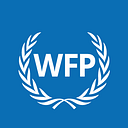Evaluation in every nation — what did we learn?
A strong culture of evaluation is relevant today more than ever. Supporting the 2014 UNGA Resolution, the evaluation function of the United Nations World Food Programme (WFP) has been working closely with countries, partners and civil society organisations to strengthen national evaluation capacities.
Working with the Centre for Learning on Evaluation and Results in Anglophone Africa (CLEAR-AA), WFP has documented the learning from its work in national evaluation capacity development (NECD) in a new digital report, launched at the 2022 National Evaluation Capacities Conference.
The power of partnership
According to the WFP Evaluation Policy 2022 partnership is fundamental to delivering results in NECD. Partnership is also one of five principles highlighted in WFP’s approach to country capacity strengthening together with ownership, recognition, trust, and time.
With this aligned vision, WFP worked with 25 government partners, 8 UN system and multi- & bilateral organizations, 11 civil society organizations and 5 global partners to implement 22 NECD initiatives since 2018.
The digital report captures these initiatives within the framework of five distinct action areas, each resulting in its own rich set of lessons:
1. Mapping evaluation capacities
2. Technical assistance to governments
3. Supporting joint and supporting country-led evaluations
4. Collaborating with VOPEs & other stakeholders
5. Global advocacy
Nine cross-cutting lessons
The lessons from the five action areas were further distilled and synthesised in an overall lessons paper, summarised below.
1.Programme-monitoring-evaluation coordination helps better align NECD actions to government needs.
WFP M&E units at country level involved in programmatic discussions around country capacity strengthening are better positioned to provide technical assistance to partners when national policies and frameworks had to be designed or reinforced, resulting in more evaluative thinking. It is also an opportunity for evaluation colleagues to expand their network within the government and initiate discussions on how to support NECD-related demands in the future.
2.Decentralized evaluation functions that are technically strong and possess a mature relationship with government and national partners are best placed to add value to country-led evaluations.
Substantive support to CLEs requires coordinated mobilization of evaluation, monitoring and programmatic expertise at different stages. This is a reminder for WFP to strategically discuss a country’s NECD gaps as part of a broader CCS workplan during conversations with partners on country strategic plan formulation and implementation. This will ensure that WFP and UN partners’ advisory role with national entities is informed by evaluation thinking, standards and procedures.
3.NECD initiatives that are results-oriented or product-driven are more likely to gain partner trust. A results-orientation approach contributes to strengthening partnerships, helps clarify expectations and roles, and helps other partners to join at any time. On the other hand, partnerships without a shared workplan or specific expected results prove harder to clarify contributions and mutual accountability in terms of progress.
4.Engagement in joint- and country-led evaluations can act as a catalyst for future capacity development cooperation.
As joint evaluation and CLE processes unfold based on national needs and mutual commitment, individuals involved at various stages can reflect on institutional and individual capacities needed to conduct independent evaluations. This provides entry points to future, longer-term NECD opportunities and allowed WFP to better understand the public administration context, ensuring that technical assistance is better organized to provide guidance in developing national evaluation frameworks.
5.Prioritising national needs is key to effective joint evaluations. Joint evaluations require many elements to work effectively.
The following logic is present in more successful joint evaluations:
- Integrating national needs in the discussion
- Opening spaces for a sense of ownership by the government
- Clarifying roles, evaluation scope, key questions, funding, and timing
- Co-chairing the steering committee that facilitates commitment
- Appointing a dedicated senior government official as co-manager
6.Process guides and quality assurance systems are instrumental in building the confidence of national staff to manage evaluations.
The WFP Decentralized Evaluation Quality Assurance System guidance is easily adaptable to government ‘language’ and public administration context for joint evaluations and CLEs. Its tools can be tailored for more complex evaluations.
7.Government-driven, UN-coordinated multistakeholder partnerships are best equipped to map and assess national evaluation capacities.
Most countries are willing to cooperate in NEC mapping exercises. As many actors are involved, the most useful mapping or assessments of national and regional capacities are planned and conducted in a coordinated manner to avoid duplication and to minimize an ‘extractive’ exercise for external use only.
8.Global networks and coalitions help to avoid duplication, share resources and increase advocacy but require a bottom-up, jointly planned regional approach.
Meaningful initiatives at global level complement and inform existing work at regional and country level where there is considerable, though often fragmented and dispersed, grassroots activity. Better coordination with a regional scope gives added value, piecing together, co-planning and raising the voice of the multiple networks and UN-Government partnerships present in the NECD space.
9.Participation in regional M&E UN working groups opens opportunities for more coordinated NECD engagement.
Regional gatherings present opportunities for WFP to share knowledge with partners about NECD activities conducted and the potential for scale up. Engagement in UN M&E working groups at country level is uneven and, with regional evaluation units’ support, requires better understanding on how NECD could be part of CCS priorities in the United Nations Sustainable Development Cooperation Guidance Framework.
